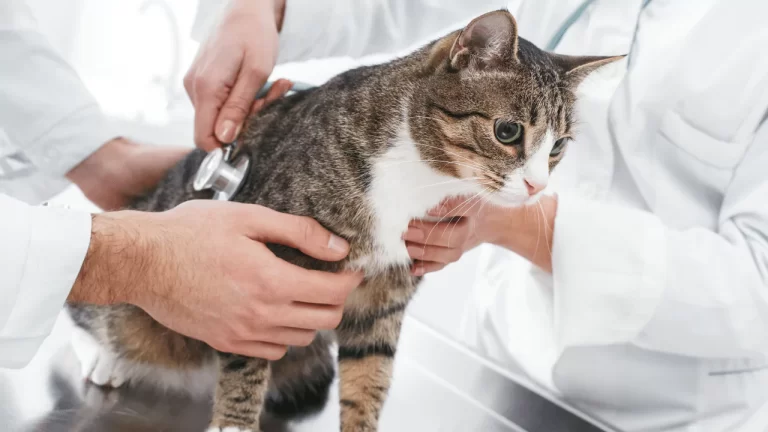No, cat food itself does not directly cause urinary tract infections (UTIs) in cats. However, certain types of cat food may increase the risk of developing UTIs or exacerbate existing urinary tract issues in cats. Proper nutrition is important for supporting urinary health in cats.
Understanding the Relationship Between Cat Food and UTIs
Urinary tract infections and other urinary issues like crystals or bladder stones are relatively common in cats. Some signs that a cat may be experiencing urinary tract problems include:
- Straining or crying when urinating
- Urinating outside the litter box
- Excessive licking of the genital area
- Frequent attempts to urinate with little production
- Pink or reddish urine
While bacteria cause UTIs, certain dietary factors may increase susceptibility. For example, feeding only dry food may contribute to UTIs in some cats because:
- It provides less moisture content than canned foods which can lead to concentrated urine.
- The minerals in some dry foods may promote crystal formation.
- The kibble shape may scrape against the bladder wall during elimination, causing microscopic wounds for bacteria to invade.
Alternatively, canned food with high moisture content produces more dilute urine which helps flush bacteria from the urinary tract. Wet foods also tend to be lower in mineral content.
Differentiating Urinary Tract Cat Food from Regular Cat Food
Cat foods designed for urinary tract health contain key differences from regular cat food, including:
- Increased moisture content to promote hydration.
- Reduced mineral content to avoid crystal formation.
- Altered pH to support a healthy urinary environment.
- Added antioxidants like vitamins C and E.
Additionally, prescription urinary tract diets have enhanced levels of nutrients like omega-3 fatty acids to help soothe bladder inflammation.
How Long Does it Take for Urinary Tract Cat Food to Work?
Most cats with minor urinary tract irritation or infections will respond positively to veterinary-approved urinary tract food within 1-2 weeks. However, every cat is different. More severe infections or chronic urinary tract disease may take up to 6-8 weeks to fully resolve.
Cats with recurring urinary tract issues may need to eat an exclusively urinary-focused diet long-term. For best results, limit treats and avoid feeding regular cat food. Continued veterinary monitoring is also recommended.
Conclusion
In summary, while cat food itself does not directly cause UTIs, certain dietary factors like low moisture content and high mineral levels may increase the risk in prone cats. Veterinary urinary tract diets help support urinary health by producing diluted urine and reducing inflammation. With the right diet and medical guidance, most cats see improvement in UTIs and other urinary problems within 1-2 months.







